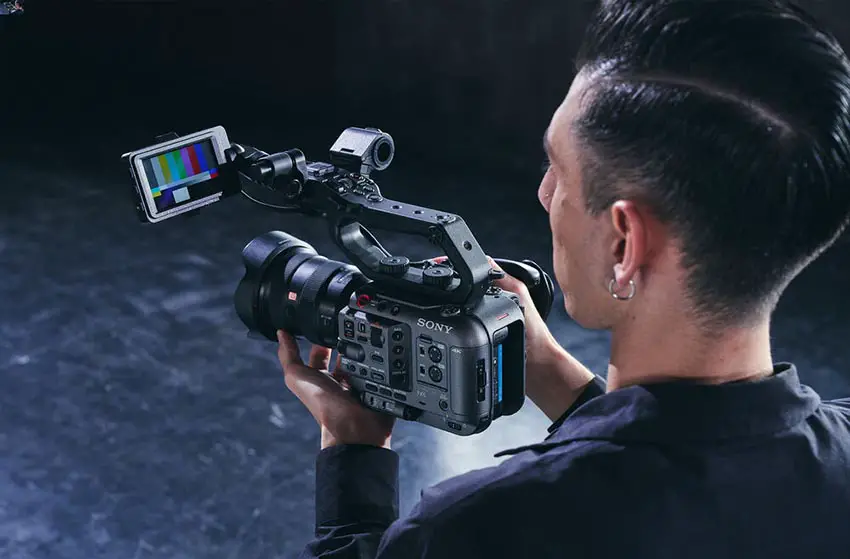

#Sony fx6 iso
Image Credit: CineDįor comparison again, the Sony a7S III internal recorded XAVC S – I 422 Intra at ISO 12800 shows 12.1 stops at SNR = 2 and 13.3 stops at SNR = 1. IMATEST DR result for the Sony FX6 at ISO12800 using XAVC-I SG3.C/SLOG3 recording.
#Sony fx6 full
The Sony FX6 shows a superb rolling shutter result of 8.7ms in full frame, UHD recording from 24 – 100 frames per second (yes, also 100fps are without crop – only at 120 fps a slight crop is applied). Using our 300Hz strobe light, it was easy to see that both the Sony a7S III and the Sony FX6 share the same results. This card is on loan from NVIDIA – thank you! Sony FX6 – Rolling Shutter
#Sony fx6 pro
Quick side note: 12 bit 4K ProRes RAW files on a 4K timeline in Premiere Pro pose no problem whatsoever for our NVIDIA GeForce RTX3090 graphics card – they run buttery smooth with about 8% load using 5.8GB memory of the GPU. Lets have a look at rolling shutter results first. So will the Sony FX6 be different? Spoiler alert – yes!īut one thing after the other. As a quick reminder, the Sony a7S III was hampered in our lab test by the heavy noise reduction which led to ugly, large blotches of chroma noise. Our Sony a7S III lab test can be found here. If you haven’t read our Sony FX6 review, please have a look here. Curious to hear the results? Then read on … Hence, signal processing may be different. Hence, I was quite curious to see how the new Sony FX6 is set up and how it compares to its smaller brother, the Sony a7S III – after all, they seem to share the same sensor but the Sony FX6 belongs to the “Cinema Line”. Now that most of the recent full frame cameras have the capability to shoot ProRes RAW via external recording, we are able to get a glimpse how the untouched “raw” images compare to the signal processed internally recorded images. keyboard_arrow_rightCameras of the Year.keyboard_arrow_rightGear Guides by Budget.keyboard_arrow_rightGear Guides by Type.

Metadata is created as 4-channel audio to match the audio channel count between a main clip and proxy file for editing with NLE software.
#Sony fx6 manual
FX6 can use Real-time Tracking to track the subject in real time even during manual focus.)
#Sony fx6 update
Note: This update supports 4.2K up to 60fps, if you want to record 4K RAW at up to 120p, you will still need to connect using the SDI module. This is a big feature addition, as previous to this, the only way to record ProRes RAW to the Ninja V/V+ was via SDI using the AtomX SDI expansion module for those devices. If you haven’t updated your Ninja V device, you can download the update here. In order to enable this feature, you will first need to make sure that you are running the latest AtomOS version (ver.10.72.1 at time of publishing) or above on your Ninja V series device. The most exciting change is support for 16-bit RAW output via HDMI to the Atomos Ninja V or Ninja V+ monitor/recorders. 2.00 is now available to download via the Sony FX6 support page Sony has yet to provide a precise date for when the update will be available to download, only saying that it’s expected sometime later this month (January 2022). Let’s take a quick look at the new features to expect and where and when you’ll be able to download the update.Ĭlick Here to View Sony FX6 Pricing and Availability at Vistek Well, as it turns out, quite a bit! Especially if you use the FX6 with Atomos Ninja V or Ninja V+ monitor/recorders. 1.10) was fairly modest, adding a couple of improvements and fixes, so what should we expect from the latest ver.

It’s been almost a year since the last firmware update for the Sony FX6 and coming up on two years since the camera was announced.


 0 kommentar(er)
0 kommentar(er)
